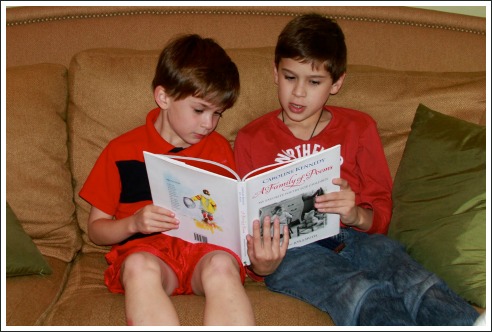
Finger plays and rhymes come to life
during circle and large group times as preschool children show word meaning
through simple actions and finger movements.
Preschoolers develop memory and recall skills as they sing and recite
the songs and poems in this curriculum resource collection. Finger plays, action poems, nursery rhymes,
and songs are grouped according to early childhood education themes. There's
quite a lot of poetry for
children around but it can be surprisingly hard to find really good poems
to share with children.
For a start, what kind
of poems is worth sharing? Does poetry even matter for kids and, if so,
why?
But first, the short answer to the question of why it's
important to expose babies and young children to poetry.
Believe it or not, hearing poems and rhymes from their
earliest days helps children develop three really critical pre-reading and
communication skills:
· phonological
awareness;
· a rich
vocabulary;
· background
knowledge;
It's tempting to think that poetry is simply a series of
rhyming lines which describe a thing or an experience.
But if it was as simple as that, why would we need poetry at
all? Encyclopedias, the internet and other kinds of writing can tell us about
experiences, things, people and even complex ideas. What does poetry add that
these other forms of writing don't? One explanation I like is that poetry
communicates the essence or the soul of something, rather than just describing
it.
For example, imagine describing a playground swing to someone:
what it looks like and how it feels to swing backwards and forwards. The person
you're talking to would probably understand but would he or she really get a
sense of the excitement and freedom a child feels on a swing?
Now, take a moment to read Robert Louis Stevenson's short poem
The Swing. The poem communicates so much more than any mere description could:
the joy, the wonder, the fun a small child feels when he or she swings high up
into the air.
Another way to explain it is to say that a poet uses language
and linguistic techniques to create visual images that come alive in the mind
of the reader or listener.
As the images come alive, the listener or reader becomes part
of the experience being described: he is there, at least in his imagination.
And because he is there, even for a very short time, his emotions are also
engaged. He feels frightened or excited, filled with awe or sad.
Pretty amazing, really,
Ms. Nora Sierra
Kinder Teacher
Early Childhood Coordinator
